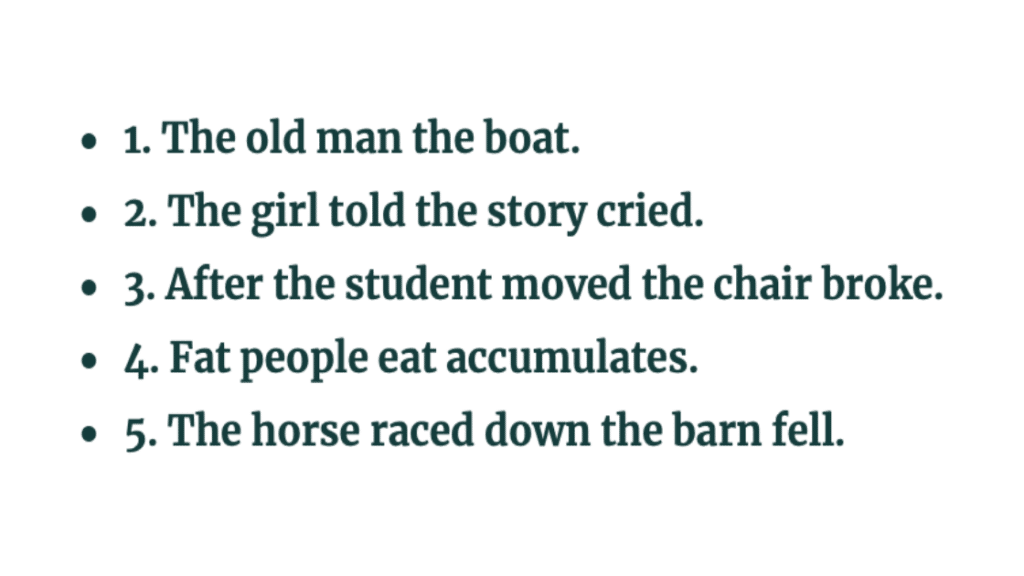English is such a zany language. It confuses the heck out of everyone, natives and non-natives alike. If you can speak English, then kudos. It’s not easy to speak a language whose madness knows no bound. To demonstrate what a crazy language English can be, we have put together a compilation of how people were often confused by English. Don’t forget to share your favorite or add more to the list. Have a good read ?
1.

2.

4.

5.

6.

7.

8.

9.

10.

11.

12.

13.

14.

15.

16.

17.

18.

19.

20.

21.









Number 11…the word is overmorrow.
The French have #18 correct. ?
Ever heard Pete Seeger ?
https://www.youtube.com/watch?v=_lCO4vBjneE
Esperanto do have double U (rule 18)
Ŭ ŭ
https://eo.wikipedia.org/wiki/%C5%AC
I recon “w” is a ligature for either “uu” or “vv”, because if you think through a word like “away” phonetically, you could spell it “auuay” and it would sound the same, or very similar. You could also use strict Italian pronounciation rules to spell it “aue”.
#22. “Yacht” is pronounced in exactly the same way as the letter “J” in German spelled aloud so I guess I am fine. 🙂
The problem with English is that borrows words from several different languages, which all have their own spelling rules.
I say, we ought (“ot” or “aht” ) to spell words phonetically (foneticali) and there would be less confusion.
Examples:
1. To peruse the contents of a book = “rede” (an “E” following a consonant makes the preceding vowel long)
2. To have perused the contents of a book – red.
3. Movement into at one side or point and out at another and especially the opposite side of = thru
“…drove a nail thru the board.”
(2): by way of
“…left thru the door.”
4. Marked by inequalities, ridges, or projections on the surface : COARSE = ruff
“The sandpaper felt ruff.”
5. The top covering of a house = ruf
Note: 4 and 5 use the rule, “Double consonants make the vowel long…single consonants make the vowel long.
5. The color “red” should be in a phonetical language, like Spanish = Rojo = roho
6. Change the word for “usually baked and leavened food made of a mixture whose basic constituent is flour or meal” to “pɑn” (as opposed to “pɒn” like its Romantic counterparts.
7. The word for “to produce (offspring) by hatching or gestation, or to bring up; nurture” should stay “bred”
8. Or better yet, just use the International Phonetic Alphabet for those situations where vowels sound different.
I like that…
Or maybe “next morrow”
16 is the same in German:
The nose runs (Die Nase läuft)
The feet smell (Die Füsse riechen)
As I got closer to her, she said…You are going too far!!
This is interesting and funny stuff, but a couple of observations:
– 3. is only true in US English. In English bologna is pronounced the way the Italians pronounce the name of the Italian city Bologna.
– 13. is wrong. Biannual is twice a year, biennial is every two years.
I knew their was something I must. It’s mostly a fog
If you’re going to make English spelling phonetic than it needs to be properly phonetic, like Spanish.
To do this, you simply have to make sure that the 40 or so vowel sounds in English each have a unique spelling. A long E sound would be EE. This is similar to the long versions of vowels in Latin, which are simply double the length of the single vowel sounds. So it would be REED, not REDE. There is not NEED (!) to over-complicate it by having the rule about an E following a consonant making the preceding vowel sound (syllable) long.
“foneticali” breaks your own rules about spelling words phonetically 😀
It should be “foenetikalee”, where oe might be the diphthong spelling of the -oe sound in foe.
However, in principal, I’m in agreement with you 😉
It would alleviate the typo problems of “your” and “you’re” which we never have a problem with in spoken conversations, since both are, phonetically, “yor”.
I feel a blog post coming on 😀 😀 😀
” It’s spelt Raymond Luxury Yach-t, but it’s pronounced ‘Throatwobbler Mangrove’.”
– Monty Python, Raymond Luxury Yacht Interview.
#9
A teacher commenting on two students’ exam papers:
Jones, where Smith had had “had”, had had “had had”. “had had” had had the examiner’s approval.
That’s 11 had’s in row, and perfectly grammatical !
#13’s slide is wrong.
Biannual: twice a year
Biennial: every two years, or every other year.
#17 you mean your toes *don’t* have toetips.
Great post though. One of my favourite topics.